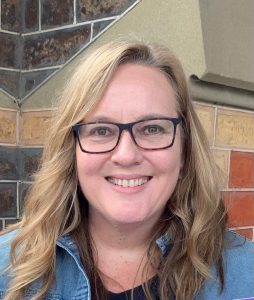In the last few months, we have been compelled to re-evaluate many of our ‘normal’ activities. This includes how we do church. We have had to re-think assumptions about how we meet as a local church community, and how we interact with one another. Many creative methods have been initiated to stay connected. The agility and creativity of our churches has been remarkable and something to be applauded!
Whilst I am so blessed to be a part of the collective discussions we are having around navigating these changes in our world, I feel that we would benefit from a new lens through which to look before we move into any sense of normal or even a ‘new normal’. As Pentecostals, we believe that we are a continuation of the Spirit-empowered church of Acts. This is such an opportunity-rich prospect! So, before we return to ‘normal’, I’d like to propose a different question to think about our churches from a different angle. In fact, I want to ask a different question. What would it look like if we stepped into the narrative of Luke-Acts and continued the ministry of the early church in our ‘new normal’? Would our churches look different? Would our interaction with the wider community look different? While the current pandemic has caused great disruption to our lives, it has also provided an opportunity to reflect on what we do and why we are doing it. This includes the ‘what’ and ‘why’ of church community. So, let’s take this opportunity to re-consider our vision for the church.
First, I believe that there is greater scope and opportunity for vision. I would even humbly suggest that our vision for the Australian church could be much bigger than we currently imagine. Not (just) bigger numerically, but bigger in quality and substance. This re-imagining starts by thinking about how the church began at Pentecost. The early disciples had heard all that Jesus said and did. Now, with the empowering of the Spirit they continued that same mission Jesus had established. In doing this, they turned their world upside down.[1]
When Jesus began his ministry, he used a passage from Isaiah to state his mission. Luke records that Jesus was anointed by the Spirit (Lk 3:21-2) and went to Nazareth “in the power of the Spirit”. At the synagogue Jesus read from Isaiah 61 to declare that:
The Spirit of the Lord is on me,
because he has anointed me
to proclaim good news to the poor.
He has sent me to proclaim freedom for the prisoners
and recovery of sight for the blind,
to set the oppressed free,
to proclaim the year of the Lord’s favour. (Luke 4:18-19 NIV)
Luke then goes on to describe how Jesus fulfilled this. He taught people to love their enemies (6:27-36). He was a prophet, powerful in word and deed: ‘The blind receive sight, the lame walk, those who have leprosy are cleansed, the deaf hear, the dead are raised, and the good news is proclaimed to the poor’ (Lk. 7.22).[2] Jesus illustrated love for neighbour by casting an ethnic enemy as the hero of a parable (Lk 10:25-37). He did not shrink from speaking truth to the powerful and politically connected. In Luke 11:37-44 Jesus condemned the Pharisees for their greed, neglect of justice, and self-promotion, instead challenging them to be generous to the poor. This focus on the prophetic ministry of Jesus is not to minimize his work of salvation, but to emphasise how Jesus modelled his mission, which was then passed on to the church at Pentecost. What do you notice about Jesus’s mission? It turns everything upside down.
Luke continues the story in the book of Acts. Like Jesus, the Holy Spirit was poured out on the disciples. The anointing of the Spirit was not just for individuals, but for the whole community—regardless of economic, age, gender or ethnic barriers—to be Spirit-baptized prophets. Luke then goes on to describe how the disciples continued the mission of Jesus. They were a prophetic community, powerful in word and deed.[3] What were some of the things this prophetic community did? Even the first seven chapters of Acts provide us with some insight:
- They performed signs and wonders in the name of Jesus (Acts 3:1-10; 5:12-6);
- They preached the good news of Jesus (Acts 2:14-41; 3:11-26; 4:33);
- They prioritized care for the poor, treating them as family (Acts 2:46;4:34);
- Those blessed with resources shared generously (Acts 2:45; 4:34-7);
- They embodied unnatural unity (Acts 2:1,44; 4:32);
- They practiced reconciliation among ethnic groups (Acts 6:1-7);
- They spoke truth to power (Acts 4:1-22; 5:17-42; 7:1-58);
- They discipled and nurtured new believers (Acts 2:42);
- Their leadership was not defined by power but by humble service to others (Acts 6:1-7).
Hopefully you can see that this was a holistic mission. These were not just programs they operated or events they ran—these activities were part of the essence of their community. They lived counter-cultural to the norms of the wider Greco-Roman culture by emphasising humility, generosity and love rather than being defined by power and status. They experienced and shared the radical, social-transforming gospel of Jesus.It wasn’t just about seeing people’s souls saved, because salvation impacted every part of their life. Living as a prophetic community meant that their relationships and priorities pointed to something beyond themselves. Their relationships and priorities pointed people to Jesus Christ.
When the Holy Spirit breaks into our communities, every part becomes holy. The good news of Jesus has transformative implications for every part of our individual and social lives. Salvation is not just about us as individuals, it is about the redemption of the world, including the whole of creation.
That is why our vision for the church is too small. It is also why an exciting possibility exists for us to embrace!
The narrative of Luke-Acts is not just a compilation of individual salvation stories but a cohesive picture of the socially transformative experience of the Spirit. Instead, the quality and substance of the early church community was a commonality where the whole was greater than the sum of its parts. A community is stronger together than just the strength of its individuals. The Spirit was not poured out only so that each person could be empowered, but so that the church community together would be empowered. Our individualistic outlook limits the vision of salvation presented throughout Scripture.
Each of the prophetic activities of Jesus and the Spirit-empowered disciples in Luke-Acts were signposts that pointed people to the kingdom of God that was inaugurated with the death and resurrection of Jesus but yet to be fulfilled. Their radical community life and unnatural unity was a foretaste of the banquet Christ promises, now and not yet.
So, what might this look like in our contemporary context?
- We would seek to perform signs and wonders in the name of Jesus;
- We would preach the full gospel of the good news of Jesus;
- We would prioritize care for the poor, treating them as family;
- Those blessed with resources would share generously;
- We would embody unnatural unity;
- We would practice reconciliation among ethnic groups;
- We would speak truth to power;
- We would prioritize discipleship and the nurturing of new believers
- We would model humble service to others in our leadership.
Hopefully you can see your church community here. It’s not a checklist but provides some of the defining qualities of the early church so we can align our mission with the mission of Christ. Our Pentecostal churches in Australia have already been doing amazing work in many of these areas, including caring for the poor, reaching out to others, and leading national initiatives for reconciliation. The next step then is to put all these jig-saw pieces together so that it creates a picture of holistic mission.
How can we shape our churches to integrate the mission of Jesus into our structures, relationships and priorities? This mission has social and political consequences we must navigate carefully to be instruments of healing and restoration in and for our world. How do we model the transformative mission of Jesus to the wider community? It is not to jump on the ‘issues’ bandwagon but it does involve a holistic approach to flourishing. This may mean confronting issues of structural poverty, racism, the need for true reconciliation with our indigenous community, domestic violence, the wise stewardship of creation. For example, caring for the poor includes addressing structures and behaviours that keep people in poverty. It includes praying and seeking the miracle-power of the Holy Spirit to be at work in our world.
Modelling transformative mission may also mean looking inside our churches to address these issues, along with other issues such as the releasing of gifted women in church boards and executive leadership teams. This is not a political or social agenda but recognizes that the mission of Jesus has implications for how we do things in our churches, and for what we have to say to the wider community.
For the church ‘down under’ to turn our world upside down, we need to return to the spirit of the early church. This is not to cut and paste their activities or situation on to ours. But as we continue the story of Luke-Acts, we live out our own story faithful to the mission of Jesus and the disciples but adapting its application to our context today.
About the author: Rev Prof Jacqueline Grey is Dean of Theology and lecturer in Biblical Studies at Alphacrucis College. She is the author of Them, Us & Me: How the Old Testament Speaks to people Today.
[1] C. Kavin Rowe, World Upside Down: Reading Acts in the Graeco-Roman Age (Oxford: OUP, 2010), 4.
[2] Roger Stronstad, The Prophethood of All Believers: A Study in Luke’s Charismatic Theology (Cleveland TN, CPT Press, 2010), 38, 45.
[3] Stronstad, 61.
Develop Your Leadership Potential and Inspire Change
Ready to lead with vision, integrity, and impact? Our Leadership courses are designed to equip you with the skills, strategies, and confidence needed to lead effectively in any context. Whether you’re in ministry, business, or community service, these courses will empower you to make a lasting difference.
Related Courses:



